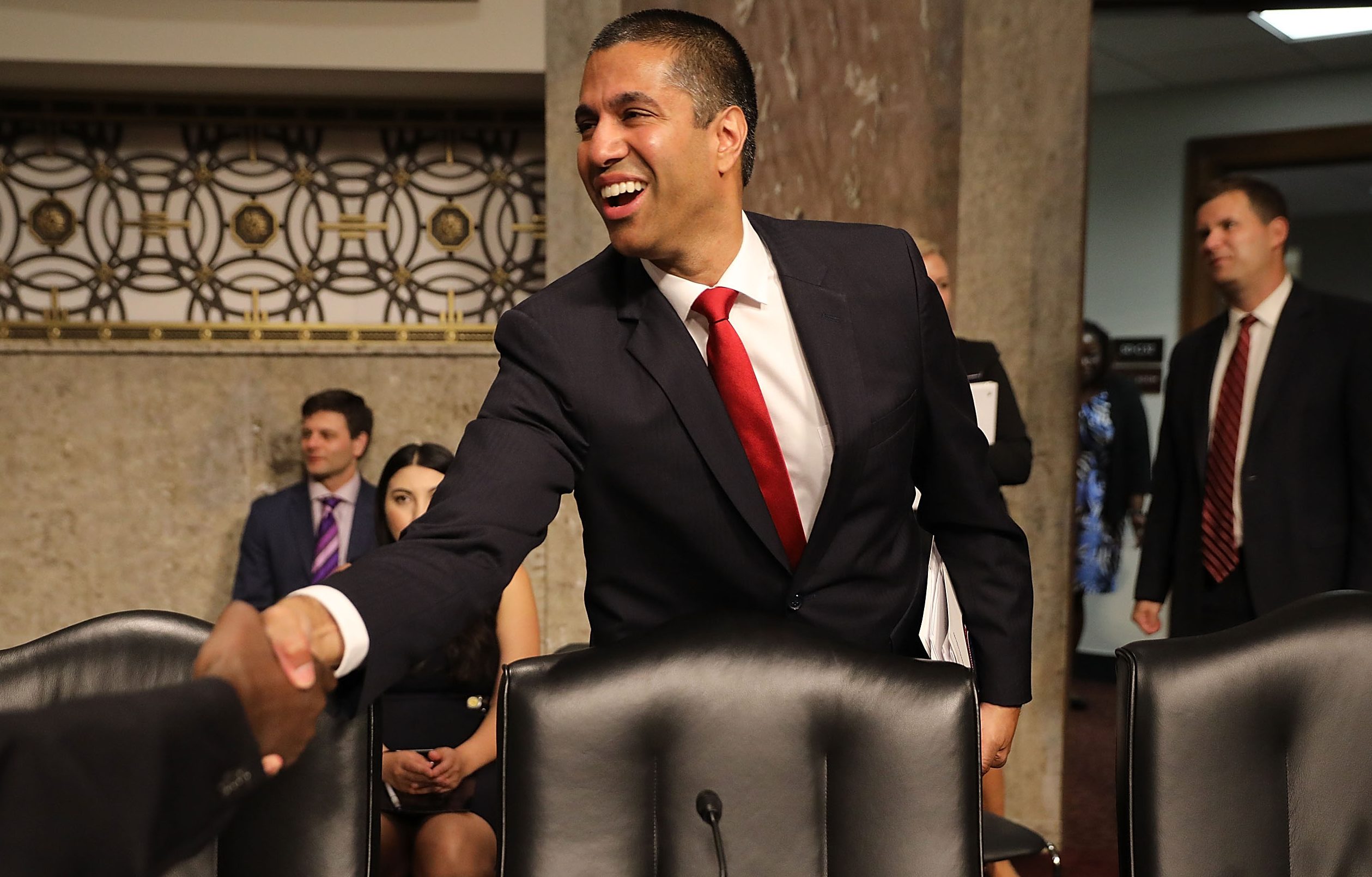Net neutrality’s Open Law Order has been repealed in a 3-2 vote cast on Dec. 14 by the FCC.
The pioneer of said technological backtracking, FCC chairman Ajit Pai, is somewhere doing a happy dance while the 83 percent of the American population who opposed the rollbacks are fuming mad and rightfully so. T
he vote on net neutrality marks an enormous step in the wrong direction, but what does it specifically mean for the American people?
Net Neutrality: A Quick Run Down
For those who haven’t heard or are unsure about what net neutrality is, one easy way to understand it is to imagine the internet as a literal highway; information travels in various lanes, all traveling at the same speed regardless of popularity, the size of the platform it exists on and so forth.
The previous net neutrality laws, passed by former president Barack Obama, stated that ISPs (internet service providers) couldn’t slow down or block information coming from other telecom companies.
The former laws also prevented the American public from being charged additional money for other internet services. The repercussions of repealing said laws means huge shifts to come on the once free web, but they affect various groups of people differently. Net neutrality has been sentenced to death and one bleak question pressing the American people is just how far-reaching are the implications of the loss of a free web.
Censorship in America
It’s important to understand that the most pressing issue isn’t whether the public would have to pay for additional services, but rather the concept of ISPs having the power to police what content is accessible and what is blocked. The new laws that are set to go into place essentially put ISPs as gatekeepers of information available on the internet, which means that if an ISP has a specific political agenda, they could potentially block content that doesn’t fit into their narrative. Sounds scary, right?
In order to fully understand just how critical this issue is, it’s necessary to mention how the lack of net neutrality could affect minority groups. Minority communities are already in a disadvantageous position when it comes to competing with huge telecom corporations, such as Comcast and Verizon, because they hold domain over a very small portion of the internet.
With new laws in place, minority communities would struggle to get their proverbial foot in the door on the internet because bigger corporations could steamroll smaller ISPs because of the power they hold. The same idea is true for smaller start-up companies who rely on the internet to get their businesses off the ground; if they lack the funding to pay into the “fast-lanes” of the internet, then their content will be pushed to the side as content from huge telecom companies take precedence.
Another way to understand the potentially damaging effects of the loss of a free and open web is to consider opinions that are some might deem “controversial.” Newsweek explained in a recent article that the #MeToo trend on Twitter “might never have led to the ongoing national reckoning over sexual harassment if an internet service provider had been able to squelch it.”
With the recent transition into the act of outing sexual predators in a public sphere, it’s reasonable to question whether or not an ISP would block such a trend from taking off if it meant protecting its own company or reputation. With the new guidelines penned by Pai, this hypothetical situation is now transforming into a very possible and scary reality.
Many civil rights groups also rely on social media to share information and plan meet-ups, protests and so forth; with the safeguards of previous net neutrality laws now gone, ISPs that disagree with social groups, such as Black Lives Matter, could effectively block such content and close communication between members. If the repeal of the Open Law Order sticks, then the U.S. is on par with Russia and China when it comes to freedom on the internet.
Your Favorite Platforms
A USA Today article explains that ISPs could “charge more to some big broadband users, say Netflix or YouTube, which could pass those increased costs to their subscribers,” and doing so could potentially cause serious backlash from the consumer base of the streaming giant. Luckily, Netflix is one of the heavy hitting platforms that has issued a statement via Twitter opposing the ruling by the FCC and ensured to its consumer base that the company will be fighting tooth and nail against the decision to repeal.
Brad Smith, the president and chief legal officer for Microsoft, also released a comment from the company via Twitter that commiserated with those who disapproved of rolling back former net neutrality laws.
Other popular platforms, such as Reddit, released a statement that explained how Congress intervening and creating more stable legislation about neutrality would best benefit the American public in the long run. It’s heartening to see large, influential corporations speaking out against the motion to repeal because it shows that the fight for a free and open web has only just begun.
Not a Hopeless Situation
While it might seem entirely bleak that a small group of predominantly Republican politicians could make a decision that 83 percent of the American public disagreed with, many other politicians are already brainstorming ways to combat the rollbacks. Charles Schumer, the Senate minority leader, commented on the repeals in a recent press conference and stated that the senate and house democrats will force a vote under the congressional review act to attempt to overturn the recent FCC ruling.
After the vote concluded, numerous states, including New York, explained that they would be pursuing lawsuits filed against the FCC in name of preserving the Obama-era regulations about neutrality. Other groups in support of neutrality, such as Public Knowledge’s lawyer Henry Feld, are already in the midst of drafting lawsuits to bring against the recent repeal. While Feld has remained silent on what the lawsuit would be based on, the effect is still the same: the recent battle for net neutrality might have been lost, but the war has just begun.

















